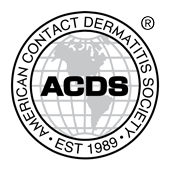Abstract Structure
Structured abstracts facilitate explicit presentation of critical information and objective assessment of scientific validity. Each abstract is limited to 250 words, must be submitted in English, and will be reproduced as submitted.
All abstracts should include the following information:
- Objectives: A precise statement of the purpose of the study or the pre-study hypothesis. This may be preceded by a brief introduction summarizing past work or relevant controversies that place the study in perspective.
- Methods: A brief statement of the methods used, including pertinent information about the study design, setting, participants, subjects, interventions, and observations.
- Results: A summary of the results presented in sufficient detail to support the conclusions.
- Conclusions: Conclusions should be succinctly stated and firmly supported by the data presented. Note important limitations.
- Acknowledgements: End abstract with acknowledgements, if any.
All case studies should include the following information:
- Background: Highlight the significance of the case and why it is being reported.
- Case presentation: Case description including key clinical and para-clinical details, relevant interventions, diagnosis, treatments and outcome.
- Conclusions: Highlight clinical and/or scientific impacts of the case, its novelty and potential broader implications of the case report in future research or clinical care
- Acknowledgements: End case study with acknowledgements, if any.
Informed Consent
Any studies involving human subjects must conform to the principles of the Declaration of Helsinki of the World Medical Association (Clinical Research 1966; 14:103) and must meet all the requirements governing informed consent of the country in which the research was performed.
Disclosure of Relevant Financial Relationships
In accordance with the essentials and standards set forth by the Accreditation Council for Continuing Medical Education, as well as guidelines proposed by the Food and Drug Administration and endorsed by the American Medical Association, an author with a conflict of interest with the content of their abstract must disclose that conflict prior to presentation. A conflict of interest includes, but is not limited to, any relevant financial relationship in a company, product or procedure mentioned in the abstract or in the presentation to be given at the conference. A conflict in and of itself will not eliminate an abstract from consideration.
If an abstract is accepted as an oral presentation, all authors are required to complete a disclosure form upon request. Presenters will acknowledge any conflict of interests in their presentation slides or on posters.
Funding
Any funds used during the research should be disclosed within the abstract.
Notification of Abstract Selection
Notification of acceptance/rejection will be emailed in January, 2025. The Presenting Author will receive all correspondence regarding the abstract status, presentation type, date and time.
Withdrawals and Revisions
Withdrawals and revisions must be received in writing to ACDS at info@contactderm.org by February 19, 2025. No changes can be submitted after that date.

